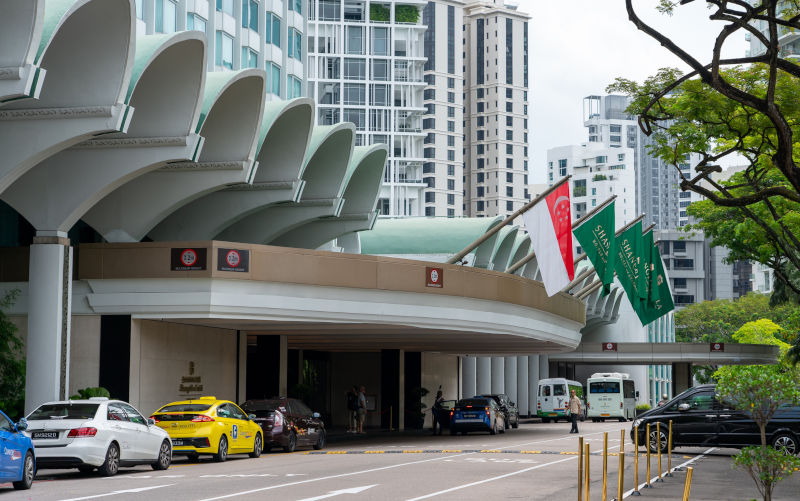
China’s Minister of National Security Dong Jun will visit Singapore from May 31 to June 2 to attend the Shangri-La Dialogue at the Shangri-La Hotel.
US Defense Secretary Lloyd Austin will meet with Chinese National Defense Minister Dong Jun during talks, the US Defense Department announced, marking another link between the two defense ministers since their video call last month. More than 550 representatives of defense and security organizations from over 40 countries are expected to attend the event, highlighting the forum’s importance in addressing military and security challenges in the Asia-Pacific region. The Shangri-La dialogue is important in maintaining the military dialogue between China and the US.
Sino-US relations have deteriorated in recent years as the US has intensified economic restrictions on China. In the military domain, the US has grown increasingly insecure and sees China as a military challenge. This perception is influenced by various factors, including the comprehensive rise of China, which the US sees as a challenge to its hegemony in the Asia-Pacific region. The US fears that these developments will upset the existing military balance and threaten its regional interests.
The US is strengthening China’s control over the Asia-Pacific region. In Northeast Asia, the leaders of the United States, Japan and South Korea held a summit at Camp David in 2023, bringing a tripartite military alliance closer to reality. In the South China Sea, the US and the Philippines resumed joint military exercises in 2023, which had been suspended, and signed a new defense cooperation agreement allowing the US military to use more military bases in the Philippines. During the 2024 military exercise, the US deployed medium-range missile systems to the Philippine island of Luzon for the first time since the end of the Cold War. Beyond the region, the United States has strengthened its trilateral defense partnership, AUKUS, with Australia and the United Kingdom, with the aim of introducing NATO to the Asia-Pacific region. From China’s perspective, the United States’ regional military strategy in the Asia-Pacific region is to gradually integrate its alliance agreements with regional countries, creating a joint military organization similar to NATO, and creating a conflict between the camps.
However, the more strained this relationship is, the more important the Shangri-La dialogue between China and the US becomes. Lack of dialogue can lead to dangerous assumptions and miscalculations, increasing the risk of unexpected escalations and conflicts. Current tensions in China-US military relations are evident in the South China Sea, where the US has been conducting frequent military exercises with the Philippines and countries outside the region, which China views as provocative. These actions by the United States are a significant factor contributing to the potential for regional conflict, highlighting the urgency of a high-level military dialogue between the two countries.
According to the agenda published on the International Strategic Studies website, the organizer of the conference, this year’s plenary sessions are divided into seven sections, covering topics such as competitive crisis management and challenges to the transregional security order. Following the recent tensions between China and the Philippines in the South China Sea, Philippine President Ferdinand Marcos Jr. will also attend and hold talks. Many discussions are expected to take place during this dialogue. However, discussions are sometimes beneficial, while silence is dangerous. As Australian Prime Minister Anthony Albanese said at the opening ceremony of the Shangri-La Dialogue in 2023, the dialogue serves as a necessary „safeguard” between countries, and the „silence of diplomatic deadlock” poses greater risks.
Although competition between China and the United States is inevitable, this dialogue provides a platform for both countries to express their views, reduce misunderstandings, and explore potential areas of cooperation. Through honest discussions, even if they involve arguments, both countries can better understand each other’s perspectives and try to find common ground.
Given the differences in strategic interests, it must be acknowledged that the path to improving China-US military relations will be challenging. However, the Shangri-La Dialogue, which has been successfully held 20 times since its inception in 2002, has rapidly expanded in scale and become one of the most influential multilateral platforms for discussing security in the Asia-Pacific – potentially an important starting point for both countries. Engage in meaningful dialogue, manage competition and avoid direct conflict.
As the world closely watches China-US relations, both countries should take this opportunity to express their willingness to communicate and work towards a more stable and secure future for the Asia-Pacific region. Under the current circumstances, China and the United States should use this important platform to improve understanding, reduce misjudgments, explore opportunities for cooperation, and jointly contribute to stability and security in the Asia-Pacific region.

. „Gracz. Namiętny pionier w mediach społecznościowych. Wielokrotnie nagradzany miłośnik muzyki. Rozrabiacz”.
